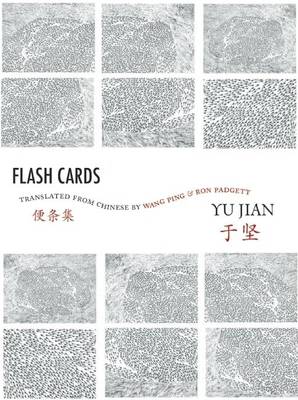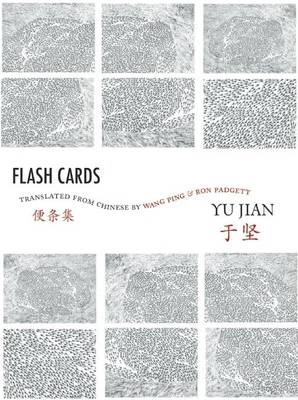
- Retrait gratuit dans votre magasin Club
- 7.000.000 titres dans notre catalogue
- Payer en toute sécurité
- Toujours un magasin près de chez vous
- Retrait gratuit dans votre magasin Club
- 7.000.0000 titres dans notre catalogue
- Payer en toute sécurité
- Toujours un magasin près de chez vous
Récompenses
Description
Flash Cards is a primer of modern Chinese life, constructing a complex philosophical vision from swatches of daily events and observations. As Yu Jian has written about his own work: "It is possible to see eternity--to see everything--in a teacup or a sweet wrapper. Everything in the world is poetry."
An eighteen-year-old college girl
walks to class on a spring morning
rosy cheeks long legs
inside a wool skirt
only a small wild part revealed
beautiful girl chest held high
a cup of tea between her hands
a book beneath her elbow
crossing the flower garden
looking straight ahead
she is rushing to catch
a philosophy class
Yu Jian, born in 1954 in Kunming, China, is a poet, author, and documentary film director. He began writing poetry in the early 1970s, influenced both by classical Chinese poetry and modern Western writers such as Walt Whitman. Yu Jian is a major figure among the "Third Generation Poets" who came after the "Misty Poetry" movement of the early 1980s.
Wang Ping's books include two collections of poetry, The Magic Whip and Of Flesh & Spirit, and the cultural study Aching for Beauty: Footbinding in China. Her novel The Last Communist Virgin was winner of the 2008 Minnesota Book Award in the category of Novel & Short Story and the 2007 Book Award from the Association for Asian American Studies in the category of Poetry/Prose.
Ron Padgett's translations include Blaise Cendrars' Complete Poems, Guillaume Apollinaire's Poet Assassinated, and, with Bill Zavatsky, Valery Larbaud's Poems of A. O. Barnabooth. A chancellor of the Academy of American Poets, Padgett was named officer in the Order of Arts and Letters by the French government. In 2009 he received the Shelley Memorial Award from the Poetry Society of America.
Spécifications
Parties prenantes
- Auteur(s) :
- Editeur:
Contenu
- Nombre de pages :
- 144
- Langue:
- Anglais
- Collection :
Caractéristiques
- EAN:
- 9780981552156
- Date de parution :
- 28-09-10
- Format:
- Livre broché
- Format numérique:
- Trade paperback (VS)
- Dimensions :
- 162 mm x 202 mm
- Poids :
- 240 g

Les avis
Nous publions uniquement les avis qui respectent les conditions requises. Consultez nos conditions pour les avis.








